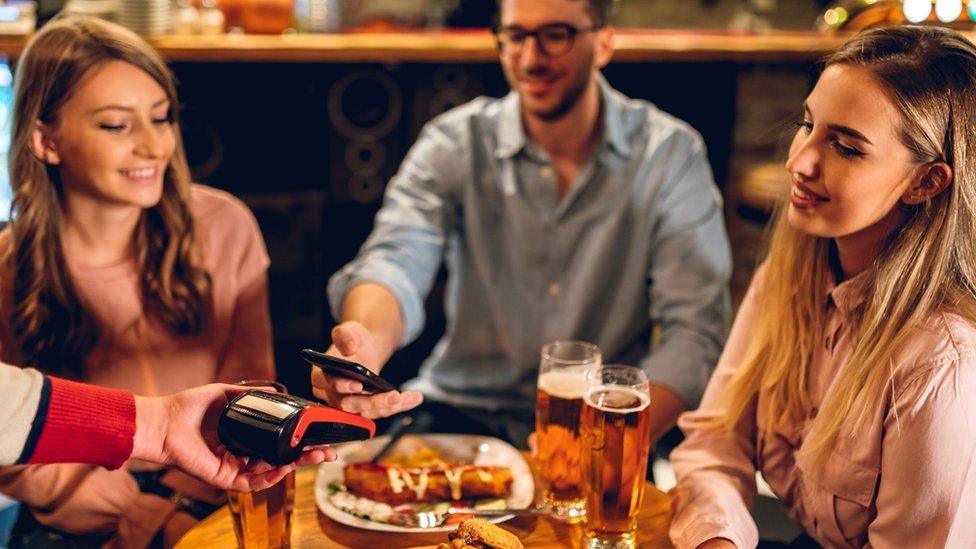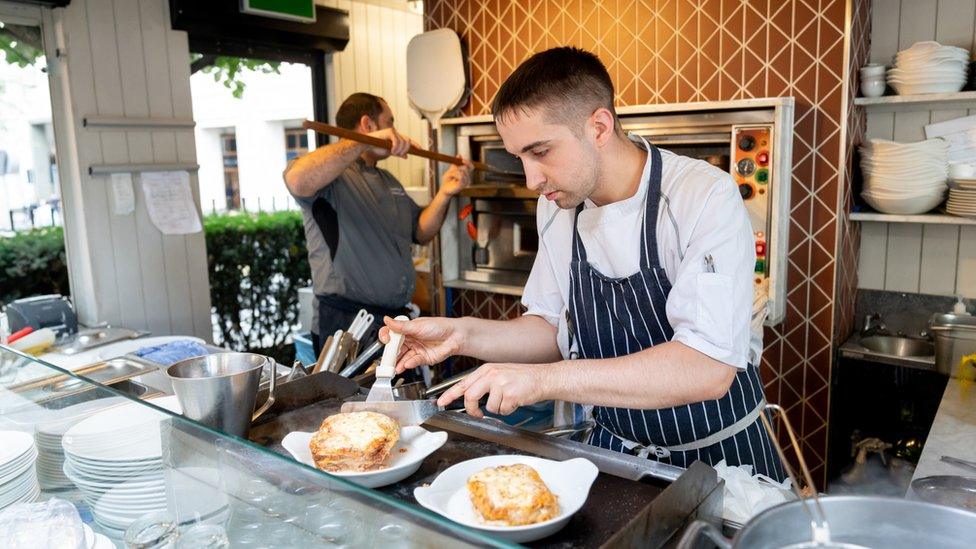Marshmallow ruling helps Loughborough firm in VAT fight
- Published

The firm says Mega Marshmallows are a S'more ingredient, not a snack in their own right
A company has won a legal battle with the government to try to avoid paying VAT on its over-sized marshmallows.
HM Revenue and Customs (HMRC) told sweet wholesaler Innovative Bites Ltd it owed £473,000 in tax.
However the firm has won the right to challenge the huge bill by arguing its Mega Marshmallows are not confectionery so should not be liable for the 20% tax.
A judge agreed and ruled the brand of mallows were ingredients not snacks.
VAT is payable on confectionery but products can be zero-rated if they are used for cooking.
The Loughborough-based firm took a case to a first tier tax tribunal to argue the large marshmallows were in fact ingredients for S'mores - an American treat where roasted marshmallows are sandwiched between chocolate biscuits.
Its lawyer said Mega Marshmallows were 5cm in height, compared to 2.5cm for regular marshmallows, and intended for roasting rather than eating out of the bag as snacks.
The firm, which specialises in US sweet goods, said the product packaging made it clear the marshmallows inside were a roasting ingredient.
HMRC lawyers argued Mega Marshmallows could still be eaten "on the go" like a bag of sweets so should incur VAT.
They also argued there was now a trend for "outsized chocolate and sweets" of which the Mega Marshmallows might be viewed as an example.
Supermarket positioning
Tribunal judge Jonathan Cannan said: "On balance we accept that the product does not fall to be described as confectionery.
"The fact that it is sold and purchased as a product specifically for roasting, the marketing on the packaging of the product which confirms that purpose, the size of the product which makes it particularly suitable for roasting.
"And the fact that it is positioned in supermarket aisles in the barbecue section during the summer months when most sales are made and otherwise in the world foods section, leads us to that conclusion.
"We therefore find that the product is not confectionery. As a result, it must be zero-rated."
HMRC will now decide whether to appeal against the judge's decision.
A spokesperson said: "HMRC is carefully considering the judgement by the first-tier tribunal."
The BBC has also contacted Innovative Bites for comment.

Follow BBC East Midlands on Facebook, external, on Twitter, external, or on Instagram, external. Send your story ideas to eastmidsnews@bbc.co.uk, external.
Related topics
- Published31 March 2022

- Published24 September 2020
